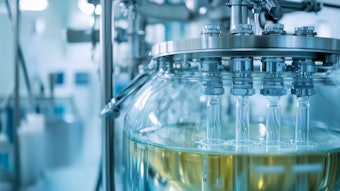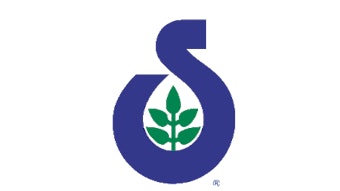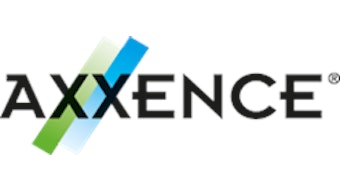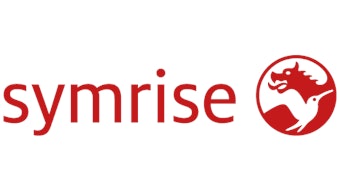
Givaudan has released its Q1 2020 financial results, which revealed the fragrance division and flavor division observed an increase of 6.3% and 3.1% year-over-year, respectively.
Related: Givaudan Releases 2019 Full Year Results
In the first three months of 2020, Givaudan recorded sales of CHF 1,619 million, an increase of 5.4% on a like-for-like basis and 6.1% in Swiss francs.
As the COVID-19 virus continues to have an impact on a global level, Givaudan started the year with good business momentum whilst maintaining its operations and global supply chain with minimal disruption.
The good growth was achieved across most product segments and geographies, with particularly strong performance in household and personal care segments within the fragrance division, as well as in packaged foods, savory, snacks and nutraceuticals in the flavor division.
Fragrance Division: sales totalled CHF 745 million, an increase of 6.3% on a like-for-like basis and an increase of 9.9% in Swiss francs. Sales growth was driven by strong volume increases in consumer products.
- Fragrance compounds (fine fragrances and consumer products combined) sales increased by 6.6% on a like-for-like basis. In Swiss francs, sales of compounds increased by 9.6% to CHF 638 million in 2020, compared with CHF 582 million in 2019.
- Fine fragrance sales increased by 1.9% on a like-for-like basis against a high comparable of 10.3% in 2019.
- Consumer products sales increased by 8.0% on a like-for-like basis with excellent growth across all customer groups and geographies.
- Sales of fragrance Ingredients and Active Beauty increased by 4.5% on a like-for-like basis.
The fine fragrance business had a strong start to the year driven by both new wins and existing products but experienced a strong reduction in March as its customers experienced a lack of activity in retail stores and in travel retail due to the COVID-19 impact.
On a product segment basis, the excellent sales growth was led by a double-digit increase in fabric care and solid performance in home and personal care.
Flavor Division: sales totalled CHF 874 million, an increase of 4.6% on a like-for-like basis and an increase of 3.1% in Swiss francs.
The sales performance was driven by new wins and good business momentum across all regions and customer groups. The key strategic focus areas of the 2020 strategy, namely health and well-being and naturals grew at double-digit and single-digit levels respectively.
From a segment perspective, beverages, snacks, savory and sweet goods all contributed to the positive sales performance, driven by increased customer demand for existing products.
By Region
- Asia Pacific
Sales increased by 2.5% on a like-for-like basis. In the high growth markets, Thailand delivered double-digit growth followed by solid single-digit growth in China. In the mature markets, Singapore delivered strong double-digit growth followed by strong single-digit growth in Japan and Korea.
The overall result of the region for the first three months of 2020 was impacted by the challenges related to the COVID-19 outbreak, however, the region recorded a strong recovery in March. From a segment perspective, the growth was led by savory and snacks.
- Europe, Africa and the Middle East
Sales increased by 5.2% on a like-for-like basis. In the mature markets, double-digit growth was achieved in Spain, followed by strong single-digit growth in France, Switzerland and Northern Europe. In the high growth markets, excellent business momentum was driven by double-digit growth in Russia, Turkey and the Middle East.
The growth was mainly achieved in the savory, snacks, dairy and sweet goods segments.
- North America
Sales increased by 1.7% on a like-for-like basis, with improved performance from large customers as well as continued growth from local and regional customers.
The performance was a result of new wins and the growth of existing business in the beverage and snacks segments.
- Latin America
Sales increased 18.6% on a like-for-like basis with excellent performance across all markets and segments, led by strong double-digit volume growth in Mexico, Colombia and Argentina.
The company’s 2020 ambition is to create further value through profitable, responsible growth. Building on the first four years of this strategic cycle, Givaudan’s 2020 ambition is defined around its three strategic pillars: growing with our customers, delivering with excellence and partnering for shared success.
As part of the 2020 strategy, Givaudan also seeks to create value through targeted acquisitions, which complement existing capabilities in providing winning solutions for its customers. Since 2014, Givaudan has completed 14 acquisitions, which are fully in line with the growth pillars within its 2020 strategy.
Ambitious financial targets are a fundamental part of Givaudan’s strategy. The Company aims to outpace the market with 4-5% sales growth and a free cash flow of 12-17% of sales, both measured as an average over the five-year period of our strategy cycle. It is Givaudan’s intention to maintain its current dividend practice as part of this ambition.
In terms of the company's purpose, “Creating for happier, healthier lives with love for nature. Let's imagine together,” is at the heart of its strategy. Givaudan has defined goals in four domains, namely creations, nature, people and communities.
These ambitions include doubling its business through creations that contribute to happier, healthier lives by 2030, becoming climate positive before 2050, becoming a leading employer for inclusion before 2025 and sourcing all materials and services in a way that protects the environment and people by 2030.
“Our good start to 2020 demonstrates the important role that we play in sustaining the global supply chain in food and beverage as well as in household, health and personal care products,” CEO Gilles Andrier said. “I am very proud of the entire Givaudan organization for their dedication during this challenging period and for enabling us to continue to support our customers to keep critical products available to consumers throughout the COVID-19 crisis.”









